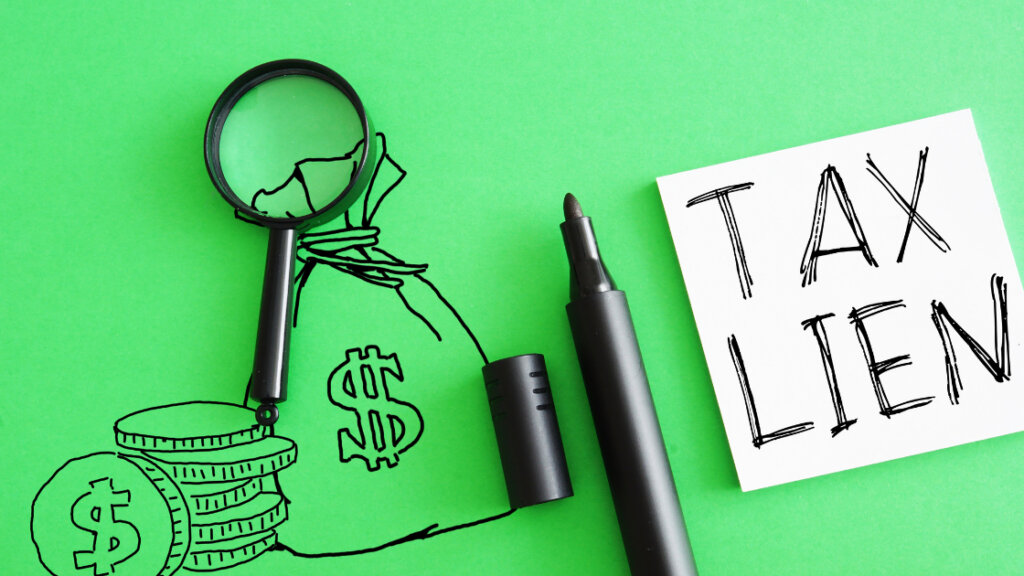
Are you considering refinancing your house but unsure if it’s possible with a lien on the property? Don’t worry, we’ve got you covered! In this blog, we will delve into the world of liens and explore whether it’s possible to refinance a house with a lien. We’ll walk you through the entire process and provide valuable insights on what steps you need to take before refinancing with a lien. Additionally, we’ll discuss the different types of liens and their impact on the refinancing process, including mechanic’s liens, judgment liens, and income and property tax liens. Lastly, we’ll reveal how you can remove a lien from your property before refinancing. So, if you’re ready to navigate the complex world of liens and refinancing, keep reading!

What is a Mortgage Lien and Can You Refinance your house with a Lien?
A mortgage lien is a legal claim on a property used as collateral for debt. It can be placed by creditors, contractors, or the government. Refinancing with a lien is possible but may involve complexities. The lienholder must agree to subordinate their lien to the new mortgage lender.
Understanding the Process: Refinance with a Lien
The process of refinancing a house with a lien can be complex and requires careful consideration. Before attempting to refinance, it’s important to have a clear understanding of what a lien is and its impact on the refinancing process. A lien is a legal claim that creditors, contractors, or the government can place on a property to secure a debt or obligation. Different types of liens, such as mechanic’s liens, judgment liens, or income and property tax liens, can affect your ability to refinance. It’s crucial to gather all the necessary paperwork, including documents related to the lien, along with your financial and credit report information. Meeting lender qualifications, such as having a good credit score and adequate home equity, is also important. Refinancing a house with a lien is possible, but it requires thorough understanding and preparation. The IRS may also place a tax lien on a property, which can impact the refinancing process.
Steps to Take Before Refinancing Lien on Your Home
Taking certain proactive steps before refinancing your house with a lien is crucial for a smoother process. Begin by understanding the nature and amount of the lien on your property. Establish communication with the lien holder to explore any possibilities of releasing or satisfying the lien. Collaborate with a reputable mortgage lender or refinancing company to thoroughly assess your options. Throughout the application process, ensure prompt submission of all necessary documentation and relevant lien information. The lender will carefully evaluate the risk associated with the lien, potentially necessitating additional measures like lien payment or escrow arrangement. Upon receiving approval, you can confidently proceed with refinancing, which may entail repayment of the existing mortgage along with any outstanding liens.
Required Paperwork for Refinancing with a Lien

When refinancing a house with a lien, it is crucial to gather the necessary paperwork and documentation. Determining the nature and type of lien on your property is the first step. From there, establish open communication with the lien holder to discuss options for releasing or satisfying the lien. Collaborate with a mortgage lender or refinancing company to explore possible solutions. They will need documentation of the lien, including copies of the lien document and proof of payment arrangements. Working with an attorney or title company can help ensure proper handling of the lien during the refinancing process. Remember to carefully consider any additional requirements and fees associated with refinancing with an email lien.
Qualifications for Refinancing with a Lien
To qualify for cash-out refinancing with a lien, it’s essential to consider multiple factors. Lenders take into account the amount of the lien and the loan-to-value ratio of your property when determining eligibility. They might insist on the lien being paid off or resolved before approving the refinance. It’s crucial to collaborate with an experienced lender who can provide guidance and clarify any additional prerequisites or limitations. Cash-out refinancing with a lien can offer benefits such as debt consolidation, lower interest rates, or accessing home equity. Nonetheless, it’s vital to thoroughly evaluate the financial consequences and seek professional advice.
Different Types of Liens and Their Impact on Refinancing
When refinancing a house with a lien, it’s crucial to understand the impact of different types of liens on the process. Tax liens, for example, are common and can complicate refinancing due to the government’s claim to the property’s equity. Another type to consider is a mechanic’s lien, which can arise from unpaid contractor or subcontractor fees. Lenders may view these liens as a risk, making the refinancing process more complex. Working with a knowledgeable lender is key to navigating these challenges and finding the best solution for refinancing, including a second mortgage. Keep in mind that refinancing with a voluntary lien requires careful consideration and guidance from professionals.
Exploring Mechanic’s Liens and Refinancing
When exploring the option of refinancing with a lien, it is essential to consider the implications of mechanic’s liens, such as the foreclosure process, on the process. Mechanic liens are legal claims placed on a property to ensure payment for construction or repair work. They can have a significant impact on home sale refinancing, making it challenging to secure a loan. Lenders are often hesitant to approve refinancing when there is an outstanding debt associated with a property. Therefore, it is crucial to address any mechanic’s liens before proceeding with refinancing. This may involve engaging in negotiations with the contractor or subcontractor who placed the lien to reach a resolution or establish a payment plan. By resolving the mechanic’s lien, homeowners can improve their chances of obtaining refinancing and accessing the benefits it offers.
Understanding Judgment Liens and Their Effect on Refinancing

When refinancing a house, it’s essential to be aware of the impact of judgment liens, including home liens. These liens, resulting from unpaid debt, can complicate the refinancing process. Before proceeding with refinancing, homeowners must satisfy or release the judgment lien. This involves addressing the outstanding debt and providing proof to the lender. In some cases, negotiation with the creditor may be necessary. For guidance on navigating the intricacies of refinancing with a judgment lien, including an involuntary lien, it’s advisable to consult a real estate attorney or financial advisor. By addressing judgment liens proactively, homeowners can position themselves for a successful refinancing experience with a direct debit installment agreement.
How Income and Property Tax Liens Affect the Refinancing Process
Income and property tax liens, including income taxes, can greatly affect the process of refinancing monthly mortgage payments. Having an outstanding income or property tax lien, such as tax debt, may make it challenging to qualify for a refinance. Lenders usually demand that all liens be paid off before approval. Nevertheless, if you have sufficient equity in your home, it may be possible for lenders to include the lien amount in your new loan. It is important to seek guidance from a mortgage professional to explore available options when you have a lien on your property and are contemplating refinancing.
Removing a Lien Before Refinancing
To move forward with refinancing your house despite a lien, it’s essential to tackle the lien matter beforehand. Begin by determining your property’s specific type of lien and understanding its priority. Then, make contact with the lien holder and engage in negotiations to secure a lien release or come to a settlement. Seeking assistance from a lawyer can be beneficial during the lien removal process. Paying off the lien or establishing a payment plan may also be necessary. Finally, collaborate closely with your mortgage lender to successfully refinance your mortgage once the lien is eliminated.
How to Find Out if There’s a Lien on Your Property for Refinancing
When considering refinancing for your property, it is crucial to ascertain if there is a lien. Before proceeding with the refinancing process, it is advisable to conduct a thorough search of public records or get in touch with your local county recorder’s office to examine any recorded liens. If a lien is discovered, it is imperative to address it appropriately before moving forward with refinancing. You should establish communication with the lienholder and explore various options for the release or satisfaction of the old loan lien. This may involve the payment of outstanding debts or engaging in negotiations to reach a settlement that would facilitate the removal of the lien. Upon successful resolution, ensure to furnish your lender with the relevant documentation as proof of the lien’s removal.
Navigating Through the Complexities of a Federal Tax Lien Before Selling Your Home

Navigating through the labyrinth of a federal tax lien might mean that you cannot pay your tax debt in full before looking to sell your home. If you hold a home loan or first mortgage and are trying to sell your house that also happens to be a home with a tax lien, you have to get into communication with the IRS. A lien may affect your ability to get approved for new equity in the home, influence the value of your home, and can even affect your credit score. The debt must be paid before this specific lien, often called an IRS tax lien, can be discharged. This lien must be satisfied which means the tax liability has to be resolved, often by selling the property. Before doing so, it’s crucial to contact the lien holder and establish a good working relationship with them. Keep in mind, the process can get complicated but the IRS will agree to place a lien only if the lienholder – the taxpayer in default – does not pay their debt. Depending on the type of lien, you could contact the IRS to discharge the lien, which entails that you pay off your tax debt. The lien is then removed from the property, providing a clear path to either refinance or sell the property. There are resources available for those burdened by such circumstances, such as obtaining one free copy of your credit report from all three credit bureaus to review the lien’s impact. You are entitled to these reports annually to allow you to understand your rights to the value of your piece of property better. The process, although daunting, may promise you the possibility to receive the proceeds at closing if you manage to satisfy the lien in full by selling your property to potential home buyers willing to navigate through this process. Paying off such a lien could give a considerable boost to your credit health.
Conclusion
Refinancing a house with a lien in Stockton can be a complex process, but it is not impossible. It requires understanding the different types of liens and their impact on refinancing, as well as taking the necessary steps to remove the lien before proceeding with the refinance. By exploring mechanic’s liens, judgment liens, and income or property tax liens, you can better navigate the refinancing process and make informed decisions. If you’re considering refinancing with a lien, it’s crucial to gather all the required paperwork and meet the qualifications set by the federal government. To learn more about how to refinance a house with a lien and ensure a smooth process, visit our website Click Cash Home Buyers and check our blogs now.

Contact Us
We would love to hear from you! Please fill out this form and we will get in touch with you shortly.

